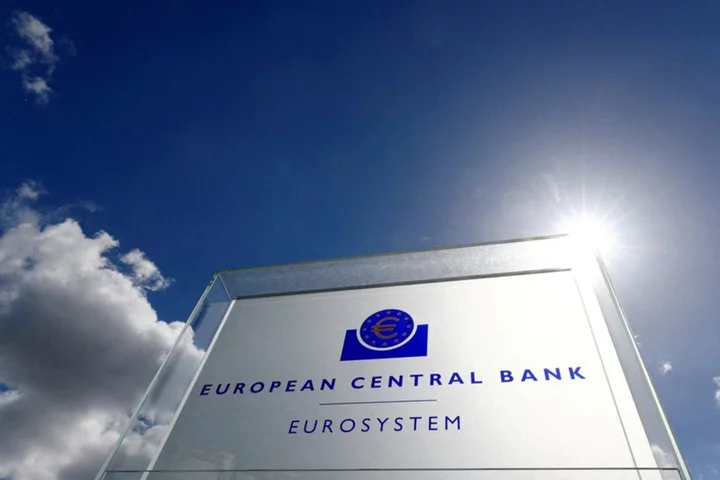FRANKFURT Activist group Greenpeace said on Wednesday the European Central Bank has broken a pledge to join the fight against climate change and should take more steps to clean up its huge portfolio of bonds, such as ditching companies that pollute the most.
The ECB started steering its corporate bond purchases towards "greener" issuers last year, but that came to a virtual standstill this month as the bank, worried about runaway inflation, stopped its flagship debt-buying programme altogether.
It had said it would tilt the reinvestment of proceeds from bonds that mature towards greener issuers, but now that the bank is no longer reinvesting those proceeds, its so-called 'green tilt' has ended.
Greenpeace said this meant the ECB was falling foul of the Paris Agreement under which countries committed to curbing an increase in global temperature, an oft-cited guiding principle for the euro zone's central bank.
"One year after, these climate commitments have been broken," Greenpeace said in a joint report with academics at three UK universities. "The ECB should start selling bonds of weak climate performers and buying bonds of strong climate performers."
ECB board member Isabel Schnabel hinted at such a move earlier this year, but that debate has yet to gain traction.
The ECB declined to comment on Tuesday.
Greenpeace added the ECB's current system to score companies' environmental performance on measures such as past emissions, reduction goals and disclosure was vulnerable to greenwashing - the practice of passing off a business as greener than it actually is.
The report flagged as "particularly concerning" the ECB's holding of bonds issued by German utility companies E.ON, which gets half of its revenues from fossil fuel, and EnBW Energie, which it said generates almost 40% of its power using coal.
Germany last year pushed to accelerate the building of its liquid natural gas (LNG) infrastructure, following Moscow's invasion of Ukraine and a sudden drop in piped Russian gas imports, although it has been scaling down those plans.
"We think it doesn't make sense for the ECB to support such investments (in LNG) since they are not consistent with climate neutrality," Daniela Gabor, a professor at the University of the West of England in Bristol and one of the authors of the report, told Reuters.
ECB President Christine Lagarde said in February the central bank "should not be accomplice to greenwashing" and would rely on its own analysis and that of internal experts to that effect.
Gabor and her co-author estimate that, using stricter criteria including companies' absolute emissions, their climate profile and any expansion plan in fossil fuel, the ECB's bond purchases have been far less green than the central bank's own scoring system implies.
Analysts at the Anthropocene Fixed Income Institute (AFII) had earlier estimated the ECB could radically cut the carbon footprint of its corporate bond portfolio by selling just 50 billion euros ($54.30 billion) of polluting companies' debt.
A separate report, published by the Inspire network of researchers earlier this month, argued the ECB could even bring down inflation by helping finance investments that mitigate the impact of climate change and natural disasters.
Greenpeace activists recently scaled Deutsche Bank's headquarters in Frankfurt to protest against climate investment policies at its DWS unit, which is the object of an investigation into so-called greenwashing. DWS's former CEO has called the allegations "unfounded".
They staged a similar protest at the ECB in 2021.
(Reporting by Francesco Canepa; Editing by Jan Harvey)









